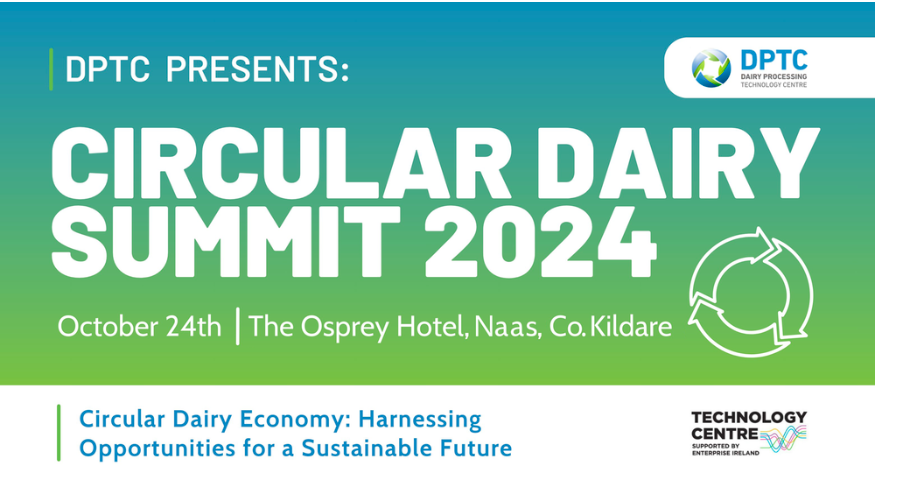RGFI received leadership recognition from the Business Post this month, as CEO PJ McCarthy,…
RGFI makes submission to candidates calling for commitment to 12% bio-methane target.
The Renewable Gas Forum of Ireland is calling on candidates in the forthcoming election to support setting a target of 12% biomethane in the gas grid by 2030 . RGFI say that biomethane produced from agricultural organic matter and by-products has the potential to save 2.6m tonnes of CO2 pa by 2030, which would significantly decarbonise heat across the residential, commercial and agricultural sectors, create over 3,000 rural jobs and provide certainty of demand for many beef and tillage farmers.
RGFI has welcomed the Fianna Fáil party commitment to draw up a national strategy for anaerobic digestion (AD) and the agri sector to exploit the full potential of biogas production and bio economy in rural Ireland.
“There are over 17,000 Ad plants already operating in Europe, with France building a new AD plant every four days. The Irish renewable gas industry is at its infancy, but with grass based agriculture, Ireland has the greatest potential of all European countries for the production of renewable gas. Research conducted by KPMG with industry, gas consumers and the agricultural sector concludes there is a compelling business case for the establishment of an indigenous Irish, biomethane industry based on gas produced largely from agricultural waste. Ireland only requires a 5% increase in grass production to support this vision . Also Ireland has in excess of 100MT slurry annually. Of this, c.40MT is captured and stored requiring management. To achieve the 12% target would require just 12% of this to be supplied to AD, ”, said PJ McCarthy, CEO of RGFI today.
In a Submission sent to candidates and their Party leaders today, RGFI says that with falling beef prices and the ongoing challenge to decarbonise agriculture, an agri based biomethane industry of scale will boost the economic as well as the environmental sustainability for Irish farmers. Specifically RGFI states that by using agricultural organic matter and dedicated crops – i.e. grass silage, clover and beet, we can :
- Save 1.3 million tonnes of CO2 emissions per annum – building on current on-farm and agri sector environmental initiatives
- Use the AD digestate biproduct as a biofertilizer that will replace 7.7 million tonnes of imported chemical fertiliser
- provide certainty of demand for many farmers – with capacity to produce more grass, satisfying both the animal feed requirement and the new AD market
- utilise 4.8m tonnes of slurry and 5.8m tonnes of additional grass silage pa
- create complimentary farm incomes (feedstock sales, potential for operators fee, land leasing income, + equity / ownership opportunities )
- improve farm practices, land management including better slurry management and chemical fertiliser displacement
- improve the carbon sequestration of grass roots and soil quality from the digestate bio-fertiliser use
- be measurable and verifiable using the Green Gas Certification Scheme
- assist in decarbonising Ireland’s agriculture supply chain/product life cycle- further supporting the global marketing of Irish agricultural produce.
RGFI is calling for early funding support at the point of production – and has proposed either a subsidy funded from the carbon tax collected on gas consumption, or a Gas PSO levy, and on reaching maturity, a biomethane obligation scheme and capital grants.
For further information please contact:
Geraldine Kearney – 087 2319430 or pr@renewablegasforum.com
For Executive Summary of this Report see https://www.renewablegasforum.com/
RGFI
RGFI is a not for profit industry forum representing all sectors of the renewable gas industry from producers through to end users. RGFI represents some of Ireland’s largest energy users. In 2019 RGFI commissioned KPMG to conduct the integrated business case through consultation with stakeholder from the sectors of the full supply chain of renewable gas.
What is Renewable Gas?
Renewable gas comes from a range of sources with the most commonly available being bio-methane. Bio-methane is produced through a process known as Anaerobic Digestion (AD), which utilises organic materials such as food wastes, sludges and agricultural feedstocks to produce a gas which can be directly substituted for natural gas.
AD has been widely adopted in Europe -specifically the UK, France, Germany and Scandinavia as well as in the US where Governments are supporting industry and agriculture to develop this sector. There are 600 AD plants in the UK and over 17,000 across Europe, which are typically operated by farmers, and input agricultural wastes, manures, catch / rotation crops and additional crops like grass, maize or beet to produce a carbon neutral, renewable gas.




This Post Has 0 Comments